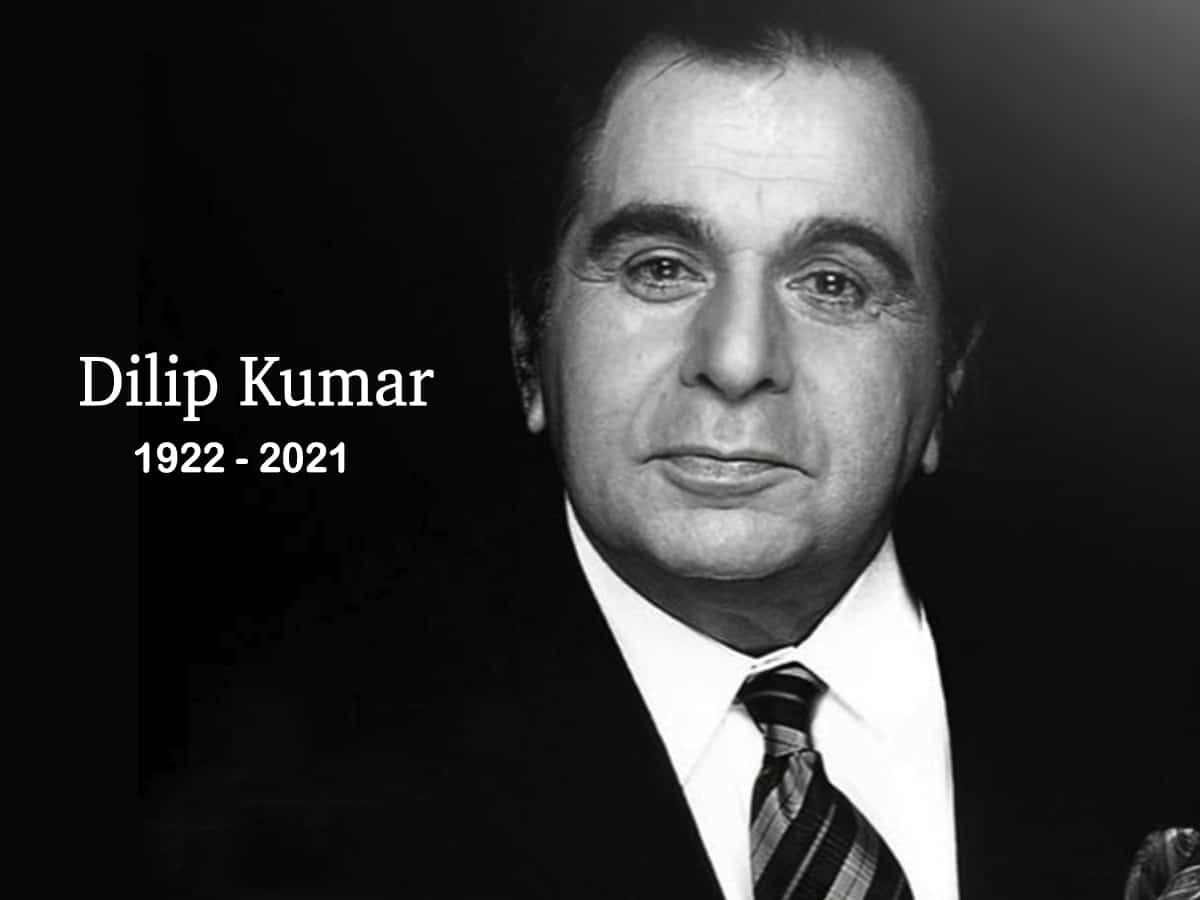
One afternoon in 1999, I called up thespian Dilip Kumar at his Bandra Bungalow landline. His PA picked up the phone and was about to hang up after saying “Sahab is resting” when the famous voice boomed: “D’costa, you keep the receiver. I will talk to this gentleman.” As I heard Dilip Sahab say this, I began sweating, gripped as I was with sudden nervousness. “Ji farmaiye, mai kya kar sakta hoon,” he asked.
I said I was a journalist from The Asian Age and was doing a story on golden era of Hindi cinema and I wanted to take his views on this. “Right now I am reciting the Quran. I will talk to you on Hindi cinema some other time,” he said. I didn’t press it further, thanked him profusely for speaking to me with so much love and ended the conversation. I never got another chance to speak to him directly again though I met and heard him a couple of times since that brief chat that summer afternoon.

Book by Faisal Farooqui
That Dilip sahab (Yusuf Khan) was a religious man is no news to me. But he was a devout Muslim who prayed five times a day and read the Quran regularly was a revelation. Now I know this and a lot more things about Dilip sahab after reading my friend Faisal Farooqui’s immensely readable book “In the Shadow of a Legend: Dilip Kumar.”
“His copy of the Quran had myriad scribbling along the margins, which were his thoughts on the commentary and understanding of certain sections of the holy book,” writes Faisal. Faisal and his elder brother Asif Farooqui had also accompanied Dilip Sahab and his wife Saira Banu–they call her Saira Baji (elder sister)–to Makkah for Umrah. I remember it was big news, reported both by Indian media outlets and newspapers based out of Saudi Arabia. Since the word had spread and Dilip sahab’s was one of the most recognizable faces, people would stop and meet him on his holy trip. They would click pictures; try to kiss his hands during twaaf or circumambulation of Ka’aba (a ritual performed in Haj and Umrah). Faisal recalls a lesson he says he learnt while performing tawaf. Asking people to back off, Faisal had said:”We have come here to perform the tawaf. Please focus on yours too. This is the house of Allah.” Faisal writes that while he was saying this, an Afghan man came up to him and spoke to him in Urdu. “Son, don’t stop anyone from meeting Dilip Kumar. Who knows, maybe their wish is being granted today? In Allah’s house, who are you to stop anyone?” Faisal says he realised his mistake and thanked the Afghan for the “deep insight he had provided me with.”
Founder-CEO of India’s leading review and rating platform Mouthshut.com, Faisal and his elder brother Asif Farooqui were very close to Dilip sahab. Faisal says that, since he lost his father when he was all of five, he saw Dilip Sahab as a father-figure. Both Dilip sahab and his wife Saira Banu doted on the Farooqui siblings. A lot of credit for making of this book must also go to the beautiful Jogger’s Park in Bandra which Dilip Sahab had helped create and where Faisal accompanied Dilip Sahab on his evening walks. A lot of conversations that Faisal recounts in the book happened during those walks or at one of the benches in the Park.
It cannot be called a biography or hagiography. It is a fascinating tribute to a great actor, a fine human being with fine tastes for food, music and shaeri by a boy who grew up in the shadow of the legend, admiring the colossus.
One didn’t know Dilip Sahab was a foodie too till one read this book. Since Yusuf sahab had spent two years (1941 to 1943) running a canteen in Pune, he fell in love with kitchen and became a foodie. One of his secret recipes was “Dilip Kumar omlette.” One of the reasons for Dilip sahab’s longevity and a healthy life, barring a few years, was that he ate nutritious food and, as Faisal tells us, he had taken good care of his health and it showed.
Though the chapters are interspersed with interesting anecdotes and stories, the chapter I liked the most is, “Nehru’s Hero: In the Service of the Nation.” Among the golden trio (Dilip Kumar, Raj Kapoor and Dev Anand), Pandit Nehru “loved Dilip Kumar’s company a lot.” Nehru had instructed Dilip sahab that whenever he was in Delhi, he was to have breakfast with the PM and his family. Pandit Nehru would ask his daughter Indira to serve eggs and toast to Dilip Kumar.
From Nehru, Faisal moves fast forward to Atal Bihari Vajpayee. After a group of misguided people began shouting slogans outside Dilip sahab’s home for his accepting Nishan-e-Imtiaz, Pakistan’s biggest civilian award, Dilip sahab wrote to PM Vajpayee asking him if his accepting the award was in anyway against the country’s interest. Vajpayee was a statesman. He understood human feelings. He didn’t tell Dilip Kumar to return the award.
Not many know that Dilip sahab had a minor role in signing of the Lahore Declaration signed on February 21, 1999.
Talking of awards, Indian government awarded Dilip Kumar Padma Vibhushan in 2015.Then Home Minister Rajnath Singh flew in to personally bestow the award on Dilip Sahab at his Mumbai home.
I agree with Faisal that Dilip Sahab deserved Bharat Ratna which he never got. The government can still right a wrong and bring more honour to Bharat Ratna by bestowing it on Dilip Kumar posthumously.



